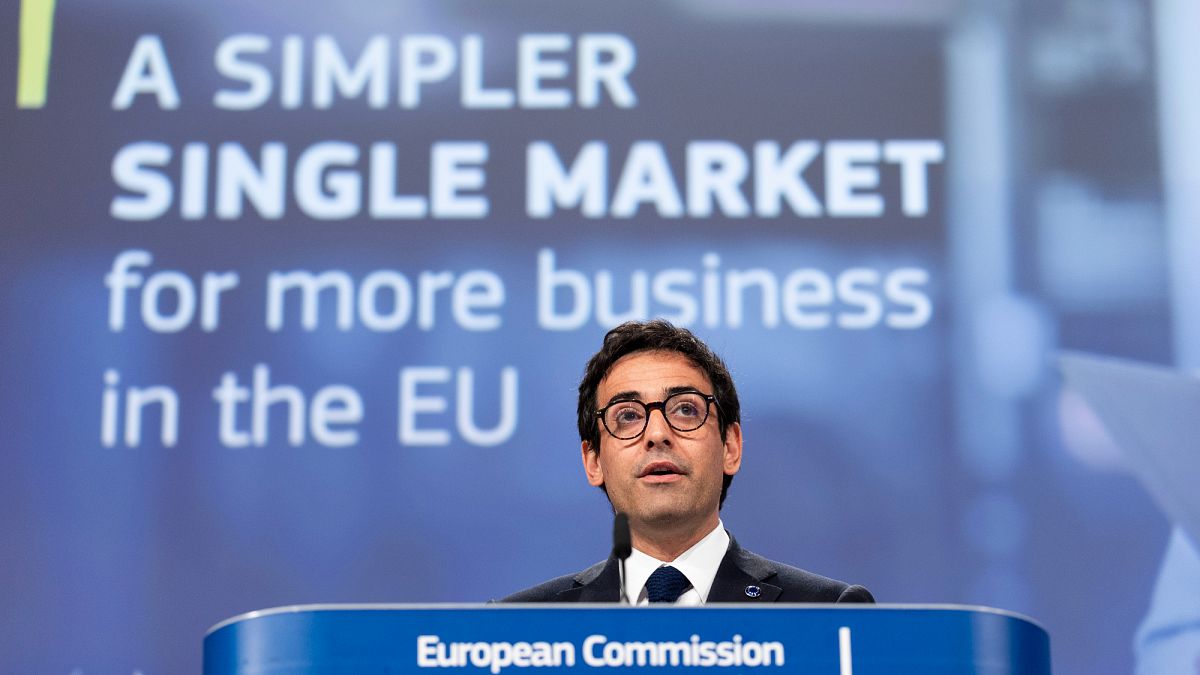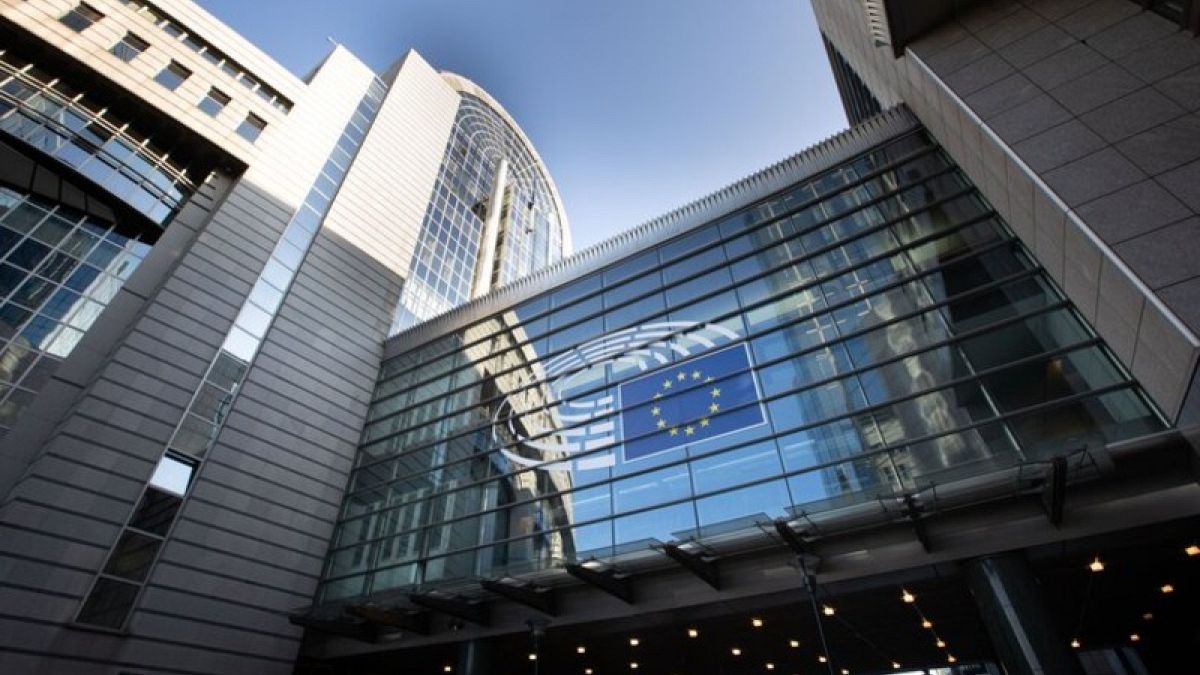& Romane Armangau
Published on
Business representatives gave a jaundiced welcome to a new single market strategy designed to strengthen internal trade presented on Wednesday by EU Vice-President Stéphane Séjourné, following years of promises on the issue by the European Commission.
“Every Commission term seems to feature a flagship communication on the single market, going back to the Monti Report in 2010, but unfortunately these have not always led to tangible improvements for businesses,” Ben Butters, the CEO of Eurochambres, which represents businesses across Europe, told Euronews.
Then Competition Commissioner Mario Monti’s 2010 report sketched a strategy to extend the opening of national markets begun following the creation of the single market in 1993.
Séjourné’s proposal has the same object: removing barriers between member states to ease business establishment and operation across the bloc. It includes measures such as cross-border recognition of professional qualifications and plans to address the lack of common standards. It aims also to facilitate cross-border provision of services by removing restrictive and diverging national regulations.
Butters added that the new strategy tables some interesting solutions to remove barriers within the single market “but the Commission and member states now need to get on with the task of tackling them; not by adding further layers of legislation, but by ensuring better implementation and enforcement.”
Séjourné said there’s momentum among industry in support of his strategy.
“In business, there is a close alignment [with the strategy’s objectives] given the geopolitical context,” he said, as the EU is locked in a trade war with the US.
“The companies are ready,” he claimed, “It’s up to us to get the member states on board now.”
Cutting red tape from smaller companies
As part of its single market strategy, the European Commission also unveiled on Wednesday its fourth omnibus package – and which also met with a lukewarm response.
One of the key proposals is the creation of a new category of company, dubbed “small mid-caps”, which would be granted exemption from certain EU rules on data protection, climate, and sustainability.
Defined by the Commission as firms with more than 250 employees and fewer than 750 and an annual turnover below €150 million, the category aims to bridge the regulatory gap between SMEs and larger corporations. Séjourné also said the proposal was targeting businesses more likely to expand internationally.
The move drew a mixed response.
Tech lobbying group CCIA Europe welcomed the initiative but expressed disappointment at the limited scope of the exemptions.
“At best, today’s proposal will ease GDPR burdens for just 0.2% of EU companies,” said Claudia Canelles Quaroni, the group’s privacy and safety lead, on the exemption to the GDPR contained in the Commission’s proposal, adding: “While well-intentioned, its limited scope means it won’t meaningfully strengthen Europe’s dwindling digital competitiveness.”
From the consumer rights perspective, Agustín Reyna, Director General of BEUC, acknowledged the value of simpler rules for both businesses and consumers.
He warned however that “simplification must in no way equal watering down standards”, adding: “Opening the GDPR could not only put consumer’s rights at risk but also create legal uncertainty for companies, raising their costs if they would need to adapt to new rules.”
Read the full article here
















